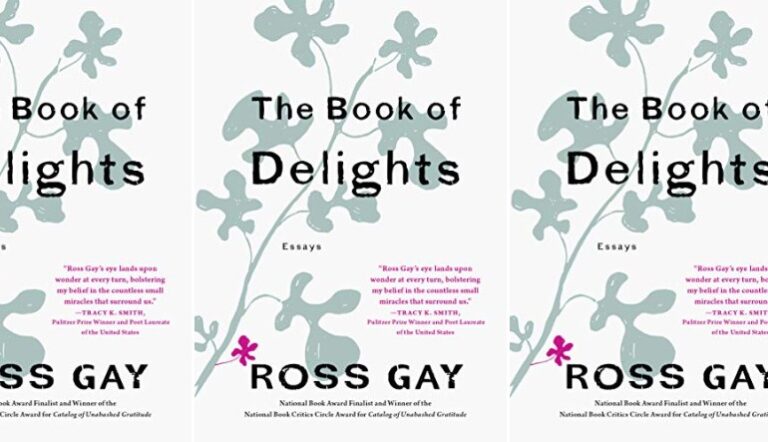The Ploughshares Round-Down: Why Your First Few Pages Mean Everything
Because I love transparency and being generally helpful to writers, or because I am a masochist, I let writers query me by Twitter. It says in my bio that if you can squeeze your pitch into three tweets I’ll respond. I’ll admit I have a few stock responses, but on probably every tenth pitch, I tell them to go ahead and send the manuscript.
This sounds really generous, but of those that get through I also have a set of subsequent stock responses I give after reading the first three pages. Usually there’s too much exposition, a plot clearly heading nowhere, or a main character making utterly predictable choices.
I have taken on one client from Twitter, though, a fiction writer, and it was because by the end of the third page I knew this would be a great book. It sounds crazy when you think about it: agents and editors want you to write an entire novel before submitting it, but they’ll make their decision based on the first few hundred words.
The most interesting thing I’ve read in the last two weeks spends a good amount of time on the importance of openings—it’s an interview with the Vice-President of Grove Atlantic, Elisabeth Schmitz. She covers a lot of really fascinating ground, but perhaps most usefully she talks about the difference between the novels she rushes to sign up and the ones that get tossed in the reject pile.
What’s Gone Down
Grove Atlantic is a press with a strong reputation for edgy yet commercial fiction. And because life is stupid sometimes, the most successful book Schmitz ever worked on there (or anywhere) was also the first book she worked on, Cold Mountain. Any editor is lucky to have a single book like that on her resume—bought for a normal amount money but with insane sales numbers—but she’s as good a bet as any to add another at some point.
In her interview with Guernica, she discussed that book, her career, the modern publishing ecosystem, what she likes to read, and what first-time authors ought to be thinking about. Given how dark and foreboding the industry can seem to unpublished writers, her perspective on the latter should be encouraging. It’s also my favorite line in the interview: “There’s nothing more exciting for an editor that finding a finished, interesting, carefully-produced manuscript by a new author.”
That’s right: it’s important to remember that there’s nothing editors like more than a brilliant new book from a writer they’ve never heard of. It’s disappointing to open a rejection letter. However, it’s similarly disappointing to send rejections, because with every single new pitch, editors and agents open it thinking, “This could be the next big thing.”
What makes Cold Mountain especially worthwhile as case study, however, is that it violates Schmitz’s own rules on how to be successful.
Finish and Polish and Polish Some More?
In a section of the interview on advice to beginning writers, Schmitz notes that you only get one chance to make a first impression. “Your first submission to a publisher is critical, so you need to work on it.” It’s true that you can’t submit a meh novel tomorrow and expect agents and editors not to remember when you submit a better one in March 2015. They totally remember it’s the same person.
Schmitz also emphasizes that editors usually don’t like unfinished manuscripts. While most nonfiction books are sold on a proposal and some sample material, with anything narrative—a novel, a literary memoir, a nonfiction book written with the movie rights potential in mind—the more material the editor has the better. So Schmitz’s advice is to finish your book and polish it. And polish it some more. Revise it until every word sparkles.
This is good advice, and yet it’s not what happened with her biggest success. Charles Frazier polished his words, but what he submitted was still only a partial manuscript. So what was the difference?
Getting Readers To Trust You
I have three reactions to material writers send me, and I have them within the first few pages. The first and most common is, “Ain’t nobody got time for that.” For those writers, I have some generic rejections that are kind and informative without being encouraging. My second reaction is, “I like this writer, but I can already see where this train is going to run off the tracks. Luckily, I know how to fix it.” (That’s probably 90% of my clients.)
The third reaction I can have to a piece of work is when I have no idea where the writer is taking me—and I’m fine with that. I can tell from the way it is unfolding on the page that even if I can give useful advice, it’s going to be good before I give that advice. Plus, that writer usually takes my counsel and turns it into something better than I was suggesting anyway.
In other words, I can tell within the first few pages of a submission whether I trust a writer. I’m guessing that’s also exactly how Schmitz feels about her favorite signings.
Establish Your Voice
One of the best ways to establish a reader’s trust is to quickly and firmly establish your voice. It doesn’t matter if your first pages also set up the main character or the location or the time period or anything else. What matters is that those pages also sound exactly how you want the world to hear you.
I read so many manuscripts that open with a brief overview of what the main character has been up to for the past five years. Oh my god, why? You just grabbed your readers by the lapel, you have their attention, and you start reading them a resume? I also read a lot of nonfiction proposals that start with a description of how much the world needs a book like this one. Sure, that should be in there, but by the end of the first few paragraphs I want to know you as a writer.
In both cases, what comes across is the writer’s eagerness to declare the work’s importance, not the actual importance of the work. Instead, make your opening riveting—make your unique voice as a writer shine through—and you’ll be surprised where readers will follow you.


